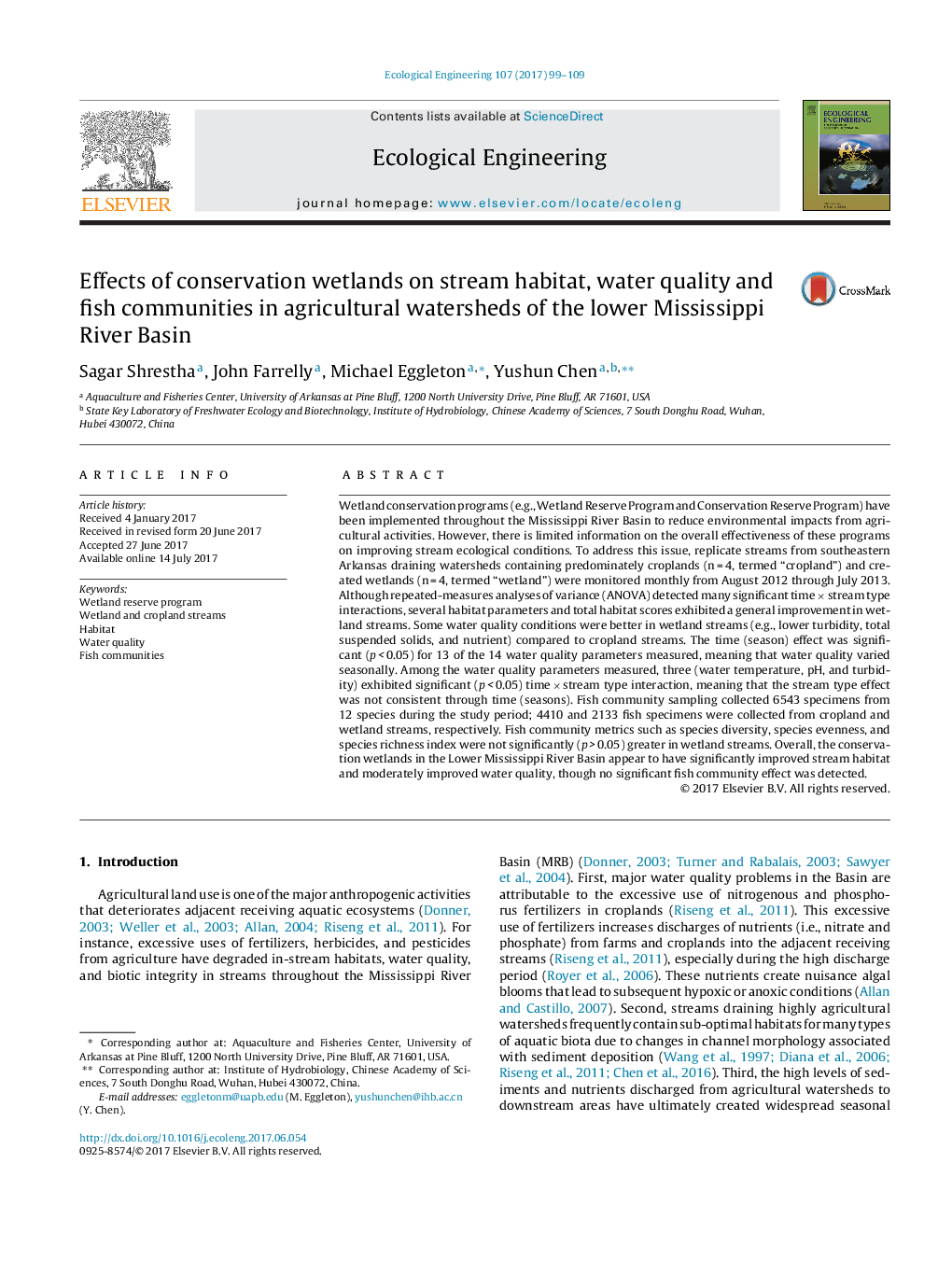| Article ID | Journal | Published Year | Pages | File Type |
|---|---|---|---|---|
| 5743664 | Ecological Engineering | 2017 | 11 Pages |
â¢Stream habitat, water quality, and fish community were studied in wetland and cropland streams.â¢Creation of wetlands has significant and detectable improving effects on stream habitats.â¢Few water quality parameters exhibited consistent significant improvements in wetland streams.â¢Stream fish community metrics were not significantly improved in wetland streams.
Wetland conservation programs (e.g., Wetland Reserve Program and Conservation Reserve Program) have been implemented throughout the Mississippi River Basin to reduce environmental impacts from agricultural activities. However, there is limited information on the overall effectiveness of these programs on improving stream ecological conditions. To address this issue, replicate streams from southeastern Arkansas draining watersheds containing predominately croplands (n = 4, termed “cropland”) and created wetlands (n = 4, termed “wetland”) were monitored monthly from August 2012 through July 2013. Although repeated-measures analyses of variance (ANOVA) detected many significant time Ã stream type interactions, several habitat parameters and total habitat scores exhibited a general improvement in wetland streams. Some water quality conditions were better in wetland streams (e.g., lower turbidity, total suspended solids, and nutrient) compared to cropland streams. The time (season) effect was significant (p < 0.05) for 13 of the 14 water quality parameters measured, meaning that water quality varied seasonally. Among the water quality parameters measured, three (water temperature, pH, and turbidity) exhibited significant (p < 0.05) time Ã stream type interaction, meaning that the stream type effect was not consistent through time (seasons). Fish community sampling collected 6543 specimens from 12 species during the study period; 4410 and 2133 fish specimens were collected from cropland and wetland streams, respectively. Fish community metrics such as species diversity, species evenness, and species richness index were not significantly (p > 0.05) greater in wetland streams. Overall, the conservation wetlands in the Lower Mississippi River Basin appear to have significantly improved stream habitat and moderately improved water quality, though no significant fish community effect was detected.
Graphical abstractDownload high-res image (114KB)Download full-size image
